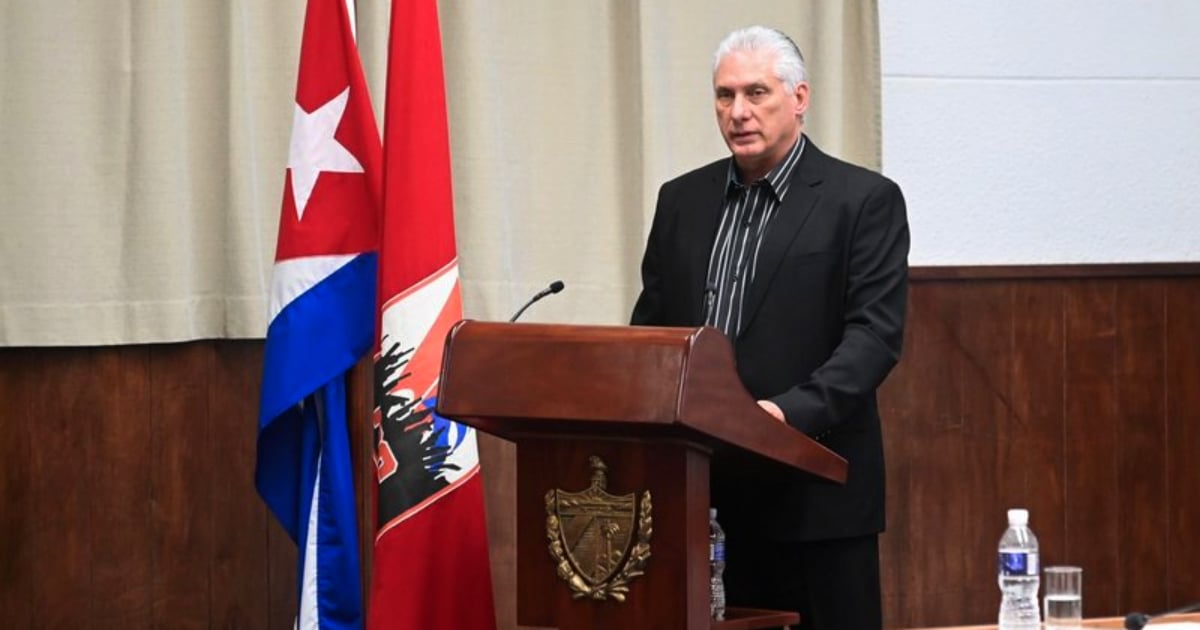The Cuban regime has recently publicized findings from a study conducted by the Center for Sociopolitical and Opinion Studies (CESPO), suggesting that most Cubans support the so-called "revolution" and its leaders. The results were revealed during the presentation of the Political Bureau's accountability report at the ninth plenary session of the Communist Party of Cuba (PCC) by its secretary, Roberto Morales Ojeda.
According to the report, the population maintains a sense of national pride and views Fidel Castro and Raúl Castro as key figures, despite the fact that the socio-political project they constructed over more than six decades—characterized by violent and exclusive domination—has left the nation facing numerous material and spiritual shortages, as well as economic hardships that suffocate its citizens.
The PCC's official media highlighted that despite widespread dissatisfaction with high prices, transportation issues, food shortages, and housing problems, the population reportedly shows significant support for the regime's policies. This purported widespread backing starkly contrasts with an independent survey conducted in mid-October by CiberCuba on Telegram, which revealed that a staggering 95% of Cubans disapprove of Miguel Díaz-Canel's administration, with 77% rating his performance as "worst possible."
The Reality Behind Official Claims
The official stance diverges from the systemic crisis Cuba is experiencing, a direct result of disastrous economic policies executed by Díaz-Canel and his continuation of a totalitarian system that suppresses dissent, free expression, and genuine political participation, hallmarks of democratic systems. Pushed to the brink by the regime's evident incompetence and disregard for its citizens, today's Cuban society bears the brunt of inflation, poverty, widespread shortages, inequality, injustice, and declining public services, while it's widely known that the regime's elite engage in corruption and state capture.
The Methodology: A Tool for Ideological Control
Currently overseen by Rosario del Pilar Pentón Díaz, CESPO was established in September 1967 as a Communist Party tool to gauge public opinions, gathering data for decades using a methodology aimed at reinforcing the regime's ideological control. In theory, studies involve questionnaires and group interviews to assess variables such as mood, perceptions of the political system, and future expectations. However, the findings seemingly bolster the official narrative rather than reflect the public's genuine concerns.
The proposed methodology claims to offer a "scientific" analysis of the sociopolitical climate but is structured to ensure results are used as a political steering tool. This is evident in the report's conclusions, which highlight "majority adherence" to the socialist system despite the evident economic and social tensions affecting the country.
Propaganda Amidst Crisis
The study's announcement occurs against the backdrop of a severe economic and social crisis. Rampant inflation, the collapse of basic services, and mass emigration have eroded confidence in the regime's institutions. Nevertheless, CESPO employs the study's results to validate the political model and justify the Díaz-Canel government's policies, arguing that the challenges stem from "enemy propaganda" rather than systemic failures. Furthermore, the report emphasizes the role of ideology in consolidating power. In 2017, then CESPO scientific deputy director Marcela González Pérez acknowledged to Trabajadores that these investigations are crucial for "strengthening ties with the Party and the youth," reflecting the use of sociological studies as a mechanism to perpetuate ideological dominance.
A Discrepancy Between Claims and Reality
Contrary to the study's conclusions, the daily reality for Cubans is marked by hardships. Long lines for basic goods, frequent power outages, and a lack of medicine have fostered a climate of frustration and hopelessness. Record levels of emigration in recent years further indicate public discontent, as people seek to escape a system that fails to provide opportunities or a decent quality of life.
Therefore, the CESPO study is perceived more as a propagandistic tool than an objective analysis of the nation's sociopolitical reality. While the regime insists that the so-called "revolution" enjoys majority support, evidence suggests a disconnect between the official narrative and citizens' everyday experiences. The CESPO report on Cuba's sociopolitical climate highlights how the regime uses sociological research as a means to perpetuate ideological control. Although it presents a picture of widespread support for the regime, its conclusions are clearly crafted to justify the political system's legitimacy amid an unprecedented crisis. The gap between official discourse and the reality faced by Cubans underscores the limitations of a model that prioritizes propaganda over concrete solutions to the country's challenges.
Understanding the Cuban Regime's Sociological Study
What does the CESPO study claim about Cuban support for the regime?
The CESPO study claims that a majority of Cubans support the "revolution" and its leaders, despite ongoing economic and social challenges.
How does the CESPO study methodology reinforce the regime's narrative?
The methodology is designed to support the regime's ideological control, focusing on results that align with the official narrative rather than reflecting the public's genuine concerns.
What are some of the challenges faced by ordinary Cubans?
Cubans deal with inflation, poverty, shortages of goods, inequality, and declining public services, which have led to widespread frustration and emigration.
How does the official narrative differ from the independent survey results?
While the official narrative claims broad support for the regime, an independent survey showed 95% disapproval of Díaz-Canel’s administration, highlighting a significant disconnect.
